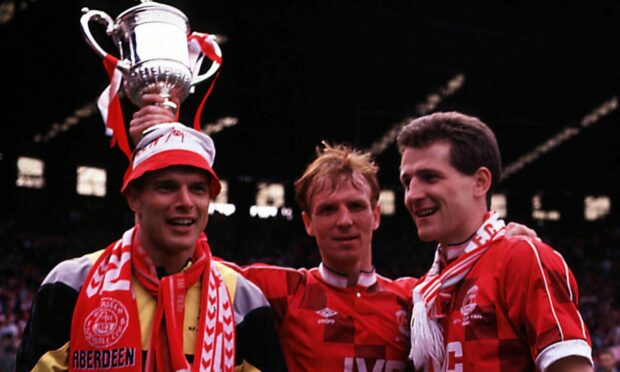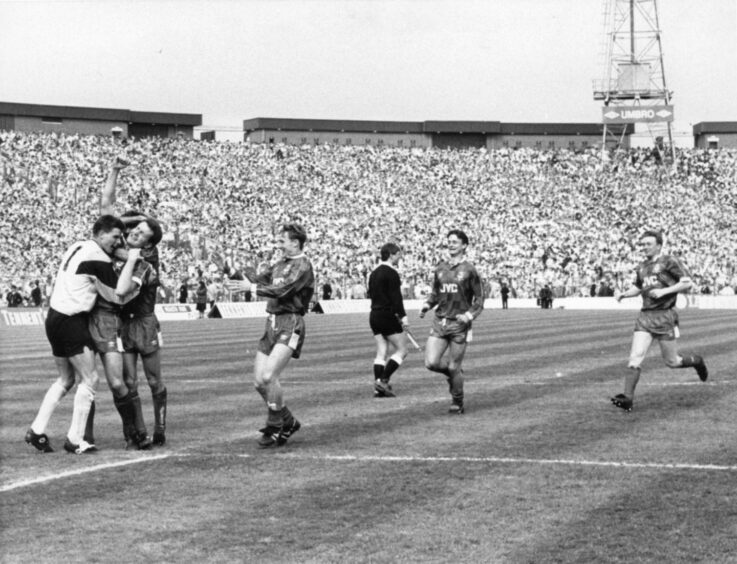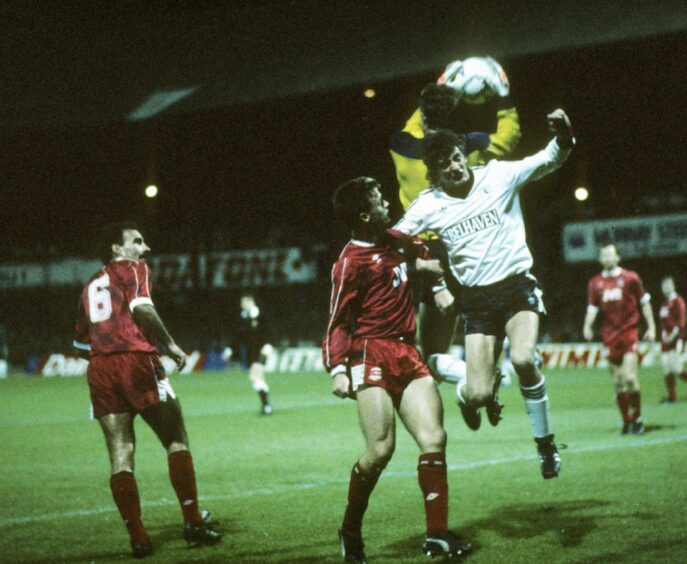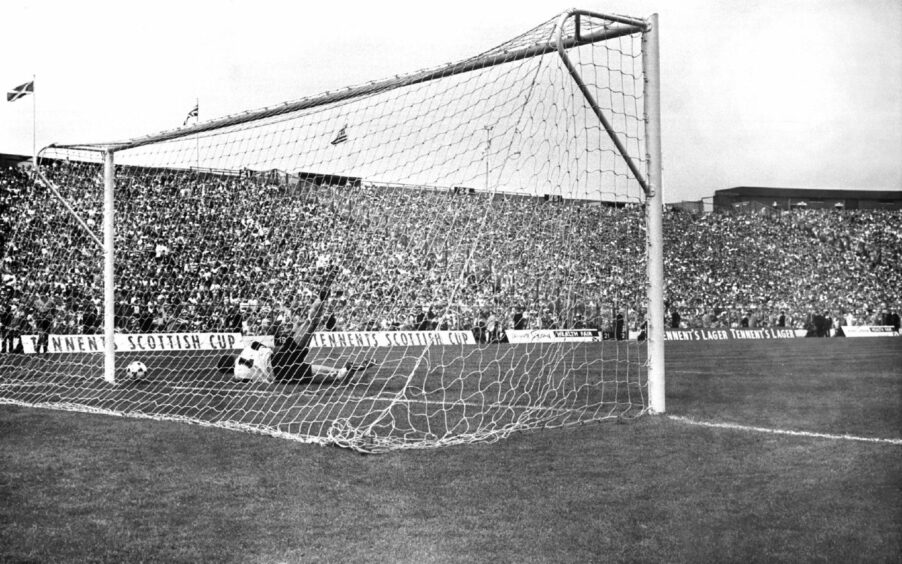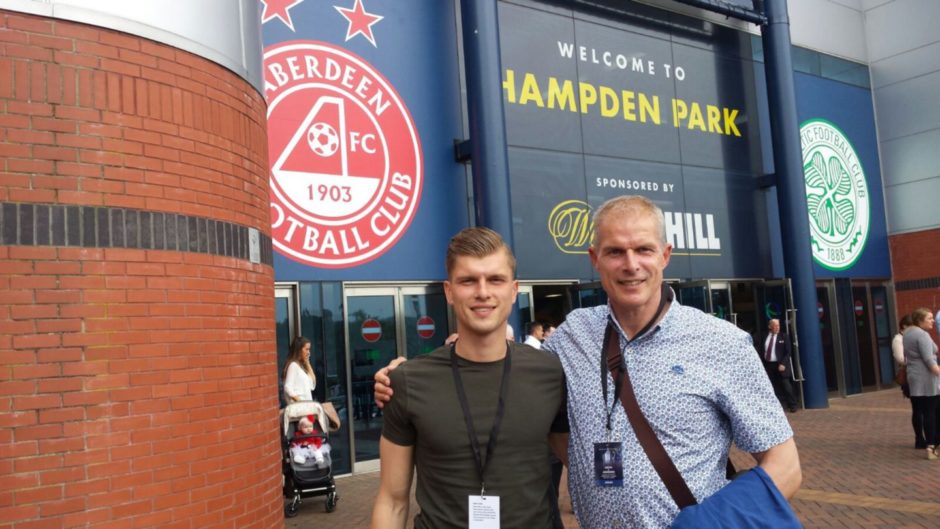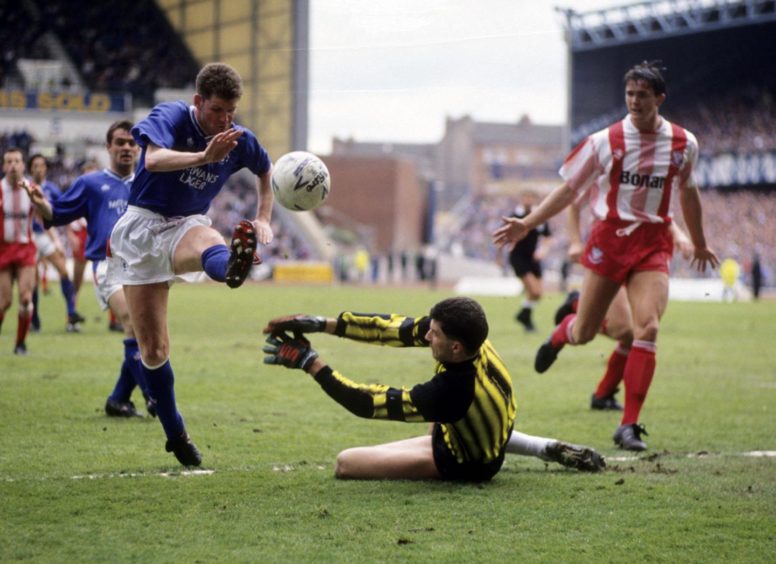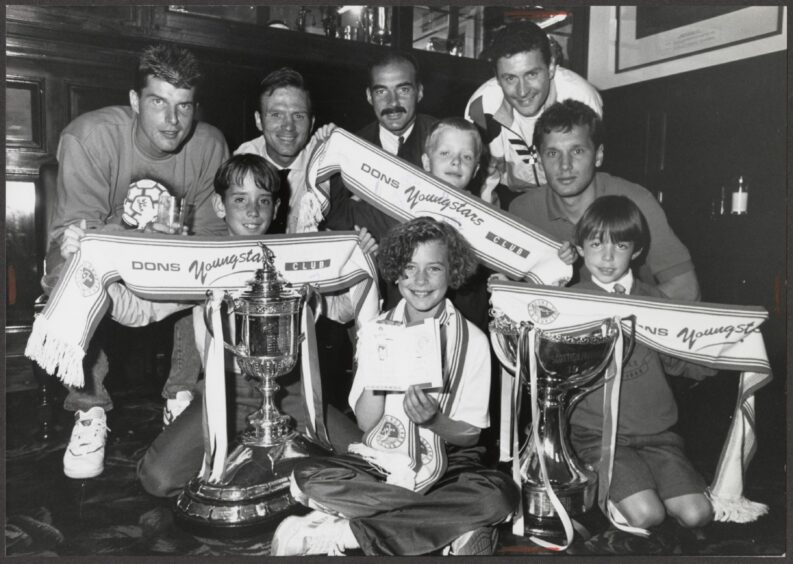It’s more than 30 years since Theo Snelders was winning trophies with Aberdeen, but the goalkeeper has admitted that his thoughts returned to Hampden Park in 1990 just a few weeks ago.
His flashback occurred during the marathon penalty session in the Carabao Cup final between Liverpool and Chelsea, where Kepa Arrizabalaga, who had only been brought on in the dying moments of extra time, missed his effort and allowed the Anfield club to earn an 11-10 victory in the shoot-out.
Even as he watched the drama, Snelders mused on his involvement in the climax of the Scottish Cup with Celtic where he started to think – when the teams were tied at 8-8 – that he might find himself in a similar position.
“I wasn’t looking forward to it, at all,” he told me, “but then I managed to get across to (Anton) Rogan’s effort and push it behind the post, and Brian Irvine sent his kick past Pat Bonner and, phew, we had got the job done.
“We could start to celebrate and it was a great sensation for all of us.”
He couldn’t have known it at that stage, while the Dons were challenging for major honours in almost every campaign, but that was the last time to date that the Pittodrie club captured this special piece of silverware.
And, despite the Old Firm’s dominance of the league, season after season, the Dutchman isn’t the only person to believe that reflects poorly on Aberdeen in recent decades.
He said: “It’s just the reality of how budgets have changed, but it does make me wonder.
“When I arrived at Aberdeen (from FC Twente) and Paul Mason came in at the same time (from FC Groningen), we were signed by Alex Smith for £300,000 and £200,000, respectively.
“Even at that time, Rangers and Celtic were spending more, but it didn’t stop us being in contention and we were always up there towards the top.
“Within two years of coming to Pittodrie, I had won the League Cup (beating Rangers 2-1 with a brace from Mason) and the Scottish Cup and we were regularly scrapping with Rangers for the championship.
“It was exciting.
“We had the likes of Alex McLeish, Willie Miller, Stewart McKimmie, but we also had Hans Gillhaus, who performed (for Holland) at the 1990 World Cup.
“The Champions League and TV money has completely transformed the situation.
“Back then, Aberdeen could chase First Division players in other leagues. Nowadays, they have to set their sights a little lower.
“And yet if you look at the size of Aberdeen, I suppose it’s strange that they haven’t won much since then.
“For me, sometimes it feels like only yesterday whenever I visit the city, and I try to get back as often as I can.
“But, for a club as big as Aberdeen, it has been a long, long time.”
Snelders and his long-time friend Mason will be in the Granite City next month for a special reunion event, but he has never forgotten the myriad happy memories he stored up in the north-east.
His children, Ryan and Kayleigh (named after the Marillion hit single), who are now 29 and 26, were both born at Aberdeen Royal Infirmary and it’s clear he relishes the opportunity to reminisce about that precious period in his life.
When he walked into Pittodrie, he was following in the footsteps of Gothenburg Great and international keeper Jim Leighton, but he admitted it probably helped that he was a relative stranger when he made his debut.
He said: “To be honest, I didn’t know much about him, other than that he was the Scotland goalie, who had gone to Manchester United.
“It would maybe have been a bigger deal if I had been in Scotland and had seen him play on a regular basis, but I was young, I was ambitious, and I thought to myself: ‘If I do well, I’ll make the fans forget about him’.
‘I had to concentrate on myself’
“Obviously, I realise now what happened in Gothenburg (the Dons won the European Cup-Winners Cup against Real Madrid in 1983) meant they were NEVER going to forget about him, but I could only focus on doing the best for the club and it all began well with our wins in these two cups.
And, if things had gone in our favour, there could have been more success.”
The latter assertion is hardly in question – or not if one applies modern standards of tackling to what used to be acceptable or takes a glance at the acrimonious, noxious rivalry that built up between Aberdeen and Rangers.
Snelders’ first tussle with the Ibrox club in 1988 was overshadowed by Neil Simpson’s scything lunge on Ian Durrant, which left the young midfielder so badly injured that it almost ended his career before it had properly started.
But then, a couple of years later, as the Dons and their Glasgow rivals battled for supremacy, Snelders was on the receiving end of a challenge from Ally McCoist that left him with a shattered cheekbone that required several operations.
An ocean’s worth of water might have passed under the bridge since that setback, but he is convinced it was the treacherous conditions at Pittodrie which were largely to blame for his privations.
He said: “I still think that it was a disgrace that the game went ahead. Football is a contact sport, so collisions happen and the weather didn’t help.
“I can’t argue that it was deliberate from McCoist. The ball was there. He had to go for it and I had to go for it.
“My first operation in Aberdeen didn’t go well so I was allowed to go back to Holland. They put four metal plates in my cheek and six months later they got taken out. It was very painful.
“But you are always aware that these things can happen. The frustrating part was not being able to play when the title race went to the last day in 1991.”
It was a clash with everything, including an early attack on the young Dons keeper Michael Watt by Mark Hateley that was more suited to Murrayfield than David Murray field and incensed the visiting supporters.
But although a draw would have earned them the championship, and they had plenty of chances in the opening half, Aberdeen’s profligacy in front of goal cost them dearly as they slipped to a 2-0 defeat.
A case of so near and so far
Watching from the sidelines, Snelders couldn’t influence the outcome, but there are lingering pangs of regret at how that climax unfolded.
He said: “We thought we were as good as them and we had our noses in front in the table before it started. But it was very close.
“Perhaps, if we had scored the first goal in that game, then it might have been different.
“Of course, it was very disappointing to finish second having come so close. But, you know, somebody has to win and somebody has to lose.”
Snelders has no complaints about his career in Scotland.
He picked up silverware, was Aberdeen’s Player of the Year in his maiden campaign, and even though he was unable to dislodge Andy Goram when he moved on to Rangers, was in the Dutch squad for the 1994 World Cup, enjoyed appearing in the Champions League, and doesn’t waste time on what might have been.
Theo Snelders has an enduring love for Aberdeen
And he is still besotted with the city where he savoured his major triumphs.
He said: “Aberdeen means so much to me. I got married when I was there and both my kids were born in Aberdeen, so it has a big place in my heart.
“I’ve missed being there because of the pandemic. But I’m sure that when I am over again, in April, it will all come flooding back – and I can hardly wait.”
- Further details about An Evening with Snelders and Mason, hosted by Ally Begg on April 8, can be found at thelongestforty.com/event/97/thelongestforty/An-Evening-with-Snelders–Mason.html
